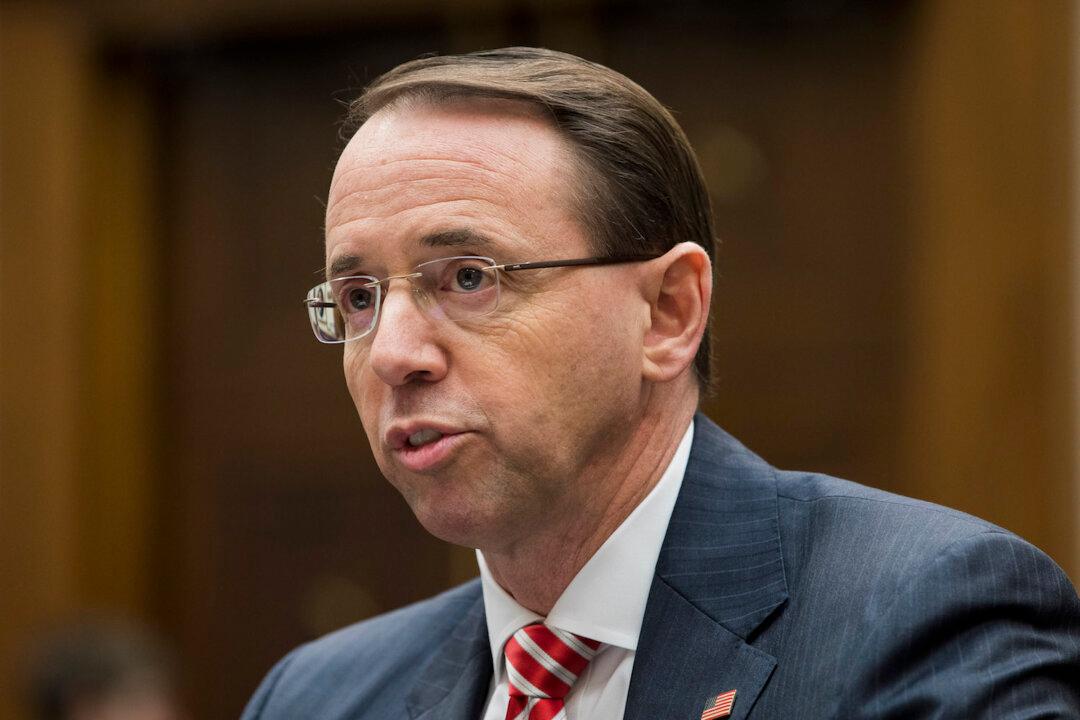Members of the conservative House Freedom Caucus have drafted articles of impeachment against Deputy Attorney General Rod Rosenstein, but they only intend to launch impeachment as a “last resort,” in case he won’t hand over documents requested by the House Judiciary Committee.
On March 22, the committee requested documents related to its investigation of potential abuses of the Foreign Intelligence Surveillance Act (FISA).





